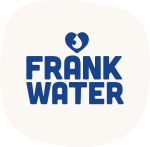Safe periods for all. How Frank Water supported partners to host a two-day sanitary pad making workshop
22.06.22
By subscribing to our newsletter, you give us permission to email you with news of our work and events, plus opportunities for volunteering, challenges to take part in and special offers in our shop. You can unsubscribe any time by clicking the link in our email footer.

22.06.22

The objective of this workshop:
Using cloth can make the women and girls susceptible to urinary tract infections and cause other problems.
We had 26 women and girls attend this workshop between the ages of 16 and 50 years old. There was a mixture of school and college students, farmers and health workers attending. They all belong to either the Gond tribe, or the further marginalised Baiga tribe.
We began with introductions and understanding the awareness of menstruation, menstrual health and hygiene. We did this through group discussions, images, videos and games.

Throughout the day the women and girls grew in confidence and started to detail their experiences of menstruation. Not only did they speak about their physical discomforts, but also the attitude of their family and community. They also shared the stark fact that no one had spoken to them about menstruation before.
Our partners discussed:
It was important the workshops created behaviour change. They discussed how one’s family, particularly male family members, can play more supportive roles during their periods.
Predominantly elderly women in the area still only use cloth during their periods. As drying these cloth pads in the sun is taboo, many dry them in the shade. This is a major cause for concern due to the unhygienic nature of this drying method.
However, the younger women from more affluent families use sanitary napkins. This poses disposal problems and cause irritation on the skin. The idea of being able to make their own affordable, comfortable, sustainable alternative sanitary pads piqued their curiosity. The example product created an excitement in the room!
The women and girls were able to use a machine or to sew with their hands. The women and girls learnt how to cut, sew and use the right cloth and filling to make the pads. At the end of the workshop, they each went home with two pads that they had made.

It was important our partners understood the levels of awareness on WASH (water, sanitation and hygiene), menstruation and menstrual hygiene. This will help them to be able to support the community further in the area.
The women and girls who have immense potential to become project allies within menstrual hygiene management and WASH related activities. They can be key points of contact in the village.